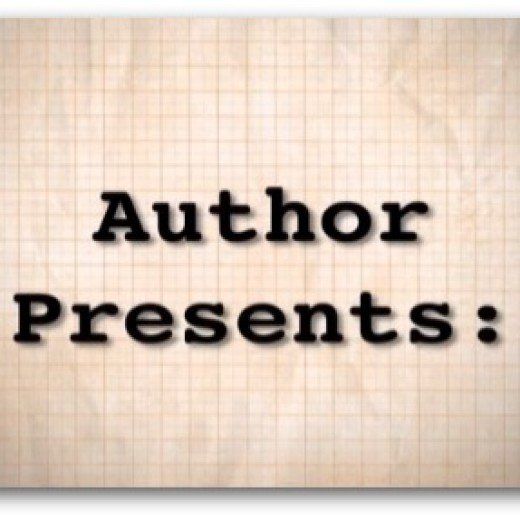10 Famous Writers Who Didn’t Die From Suicide or Alcohol
 Reprinted by permission from: http://www.onlinecertificateprograms.org.
Reprinted by permission from: http://www.onlinecertificateprograms.org.
There’s a stereotype about writers that’s hard to shake from your subconscious; namely, that they’re a bunch of boozy sad sacks who suffer so much for their art that they usher themselves into early, bitter graves by addiction to their vices.
Jack Kerouac died of cirrhosis from a life of heavy drinking; Ernest Hemingway turned a shotgun on himself; David Foster Wallace hung himself after a lifetime of clinical depression.
But these sad stories have a way of clouding the fact that, all urban legends and poetic posturing aside, many authors live long lives that end as a result of age, illness, or any of the number of causes that usually take someone. The writers listed below spent their lives creating works of art, and they lived long enough to enjoy the fruits of their labor. It’s nice to remember that art doesn’t have to exact such a high cost.
 Isaac Asimov: Isaac Asimov got a lot done in his 72 years: in addition to being a professor of biochemistry, he was a titan in the sci-fi world, with his name on more than 500 books as author or editor. The epic Foundation series was one of most popular and acclaimed works, and his
Isaac Asimov: Isaac Asimov got a lot done in his 72 years: in addition to being a professor of biochemistry, he was a titan in the sci-fi world, with his name on more than 500 books as author or editor. The epic Foundation series was one of most popular and acclaimed works, and his  Three Laws of Robotics became a foundational bedrock for many of his writings. He also produced a number of history volumes in later life, examining the Greeks, the Romans, and the Egyptians. He received multiple awards and more than a dozen honorary doctorates in lengthy and influential career. He died in 1992 after some earlier health problems including a heart attack, and years later it was revealed that some of the complications were a result of HIV contracted during a blood transfusion.
Three Laws of Robotics became a foundational bedrock for many of his writings. He also produced a number of history volumes in later life, examining the Greeks, the Romans, and the Egyptians. He received multiple awards and more than a dozen honorary doctorates in lengthy and influential career. He died in 1992 after some earlier health problems including a heart attack, and years later it was revealed that some of the complications were a result of HIV contracted during a blood transfusion. Patricia Highsmith: Born in Fort Worth, Texas, in 1921, Patricia Highsmith was acclaimed for her suspenseful psychological thrillers, most notably the Tom Ripley franchise. Her debut novel was Strangers on a Train, adapted into a successul film by Alfred Hitchcock, and The Talented Mr. Ripley would go on to inspire multiple film versions. Highsmith, a lesbian, often created works with gay undertones, marking her as one of the more progressive authors of the mid-20th century. She wound up publishing 22 novels and eight short-story collections before dying of leukemia in 1995 at age 74.
Patricia Highsmith: Born in Fort Worth, Texas, in 1921, Patricia Highsmith was acclaimed for her suspenseful psychological thrillers, most notably the Tom Ripley franchise. Her debut novel was Strangers on a Train, adapted into a successul film by Alfred Hitchcock, and The Talented Mr. Ripley would go on to inspire multiple film versions. Highsmith, a lesbian, often created works with gay undertones, marking her as one of the more progressive authors of the mid-20th century. She wound up publishing 22 novels and eight short-story collections before dying of leukemia in 1995 at age 74. James Baldwin: James Baldwin was another gay writer notable for tackling issues of sex and race long before others were so open about it. He debuted with the semi-autobiographical Go Tell It on the Mountain in 1953, and would go on to explore race and class and a variety of other issues with his incisive essays and fiction work. He also became active in the civil rights movement, and his 1972 nonfiction work No Name in the Street examined the movement and the death of major leaders Malcolm X, Medgar Evers, and Martin Luther King Jr. Baldwin died at age 63 in 1987 from esophageal cancer, leaving behind an influential body of work that continues to challenge and inspire.
James Baldwin: James Baldwin was another gay writer notable for tackling issues of sex and race long before others were so open about it. He debuted with the semi-autobiographical Go Tell It on the Mountain in 1953, and would go on to explore race and class and a variety of other issues with his incisive essays and fiction work. He also became active in the civil rights movement, and his 1972 nonfiction work No Name in the Street examined the movement and the death of major leaders Malcolm X, Medgar Evers, and Martin Luther King Jr. Baldwin died at age 63 in 1987 from esophageal cancer, leaving behind an influential body of work that continues to challenge and inspire. L. Frank Baum: L. Frank Baum left an indelible mark on children’s literature with 1900’s The Wonderful Wizard of Oz, which remains a classic thanks in no small part to the beloved 1939 film. What some forget that is that Baum also wrote thirteen sequels to create an immensely detailed fantasy franchise, and he also wrote scores of other novels, short stories, and poetry. Baum also campaigned for women’s suffrage. He died of a stroke in 1919, not long before he would have turned 63.
L. Frank Baum: L. Frank Baum left an indelible mark on children’s literature with 1900’s The Wonderful Wizard of Oz, which remains a classic thanks in no small part to the beloved 1939 film. What some forget that is that Baum also wrote thirteen sequels to create an immensely detailed fantasy franchise, and he also wrote scores of other novels, short stories, and poetry. Baum also campaigned for women’s suffrage. He died of a stroke in 1919, not long before he would have turned 63. Ken Kesey: Ken Kesey was a prominent counterculture figure during the tumultuous 1960s, though he considered himself something of a lost man between the earlier beatniks and later hippies. After a small start, Kesey gained prominence with 1962’s One Flew Over the Cuckoo’s Nest, which he got the inspiration to write after working the night shift at a veterans’ hospital. It became an instant success and was soon adapted into a stage play, followed in 1975 by the classic film version starring Jack Nicholson. He released Sometimes a Great Notion in 1964 and joined a few other countercultural dignitaries (including Neal Cassady) to form the “Merry Pranksters” and travel across the country getting high and being vaguely philosophical. An believer in art until the end of his days, his final major work as a Rolling Stone essay published shortly after 9/11 in which he advocated for peace. He died in November 2001 after a series of compounded health problems. He was 66.
Ken Kesey: Ken Kesey was a prominent counterculture figure during the tumultuous 1960s, though he considered himself something of a lost man between the earlier beatniks and later hippies. After a small start, Kesey gained prominence with 1962’s One Flew Over the Cuckoo’s Nest, which he got the inspiration to write after working the night shift at a veterans’ hospital. It became an instant success and was soon adapted into a stage play, followed in 1975 by the classic film version starring Jack Nicholson. He released Sometimes a Great Notion in 1964 and joined a few other countercultural dignitaries (including Neal Cassady) to form the “Merry Pranksters” and travel across the country getting high and being vaguely philosophical. An believer in art until the end of his days, his final major work as a Rolling Stone essay published shortly after 9/11 in which he advocated for peace. He died in November 2001 after a series of compounded health problems. He was 66. Pearl S. Buck: The daughter of Southern Presbyterian missionaries, Pearl S. Buck grew up in China and spent a large part of her life there. Seeing events like the Boxer Rebellion and the Nanking Incident firsthand had an effect on her, influencing her humanitarian efforts. Her 1931 novel The Good Earth was the bestselling book in the U.S. for that year and the next, and the story about a Chinese village won her the Pulitzer in 1932. Yet her diverse bibliography includes many more novels and a host of nonfiction titles, many about China, and a variety of short story collections. She died in 1973 of lung cancer, at the age of 80, and her name remains synonymous with smart, passionate writing about justice and humanity.
Pearl S. Buck: The daughter of Southern Presbyterian missionaries, Pearl S. Buck grew up in China and spent a large part of her life there. Seeing events like the Boxer Rebellion and the Nanking Incident firsthand had an effect on her, influencing her humanitarian efforts. Her 1931 novel The Good Earth was the bestselling book in the U.S. for that year and the next, and the story about a Chinese village won her the Pulitzer in 1932. Yet her diverse bibliography includes many more novels and a host of nonfiction titles, many about China, and a variety of short story collections. She died in 1973 of lung cancer, at the age of 80, and her name remains synonymous with smart, passionate writing about justice and humanity. Ralph Ellison: Ralph Ellison won a National Book Award for Invisible Man, his 1952 novel about what it meant to be black in America in the early 20th century. The novel is regarded as one of the best in modern literature, but Ellison was also noted for his critical writings. Shadow and Act, from 1964, is an essay collection spanning twenty years of life and reflection on culture and class. He lived to be 80, dying in 1994 of pancreatic cancer. Some of his unfinished works were published posthumously.
Ralph Ellison: Ralph Ellison won a National Book Award for Invisible Man, his 1952 novel about what it meant to be black in America in the early 20th century. The novel is regarded as one of the best in modern literature, but Ellison was also noted for his critical writings. Shadow and Act, from 1964, is an essay collection spanning twenty years of life and reflection on culture and class. He lived to be 80, dying in 1994 of pancreatic cancer. Some of his unfinished works were published posthumously. Michael Crichton: Michael Crichton died in 2008 at the age of 66 after a quiet battle with cancer. He left behind an impressive body of sci-fi and adventure fiction that probed the meaning of humanity and the cost of technological advancement. He remains the only artist ever to have No. 1 hits simultaneously in TV, movies, and books, a feat he accomplished in 1994 with (respectively) ER, Jurassic Park, and Disclosure. His career gathered steam in the 1970s and ’80s with thrillers like The Andromeda Strain, The Terminal Man, and Sphere, and in later life he became a promiment public speaker on a variety of scientific subjects, including the complexity of global warming.
Michael Crichton: Michael Crichton died in 2008 at the age of 66 after a quiet battle with cancer. He left behind an impressive body of sci-fi and adventure fiction that probed the meaning of humanity and the cost of technological advancement. He remains the only artist ever to have No. 1 hits simultaneously in TV, movies, and books, a feat he accomplished in 1994 with (respectively) ER, Jurassic Park, and Disclosure. His career gathered steam in the 1970s and ’80s with thrillers like The Andromeda Strain, The Terminal Man, and Sphere, and in later life he became a promiment public speaker on a variety of scientific subjects, including the complexity of global warming. Philip K. Dick: Easily one of the most influential and pioneering writers in science fiction — not to mention one of the most adapted, with nine of his stories turned into films — Philip K. Dick is known for creating fantastical, intriguing worlds that use outlandish ideas to explore our own. The Man in the High Castle, set in a world in which the Axis won World War II, is a harrowing examination of authoritarian control, while stories like “We Can Remember It For You Wholesale” and “The Minority Report” dealt with memory and fate in compelling ways. Unfortunately, many mainstream audiences and critics didn’t begin to embrace his work until it was almost too late. Dick died after having a stroke in March 1982, at the age of 53, having written dozens of novels and more than 100 short stories.
Philip K. Dick: Easily one of the most influential and pioneering writers in science fiction — not to mention one of the most adapted, with nine of his stories turned into films — Philip K. Dick is known for creating fantastical, intriguing worlds that use outlandish ideas to explore our own. The Man in the High Castle, set in a world in which the Axis won World War II, is a harrowing examination of authoritarian control, while stories like “We Can Remember It For You Wholesale” and “The Minority Report” dealt with memory and fate in compelling ways. Unfortunately, many mainstream audiences and critics didn’t begin to embrace his work until it was almost too late. Dick died after having a stroke in March 1982, at the age of 53, having written dozens of novels and more than 100 short stories. Marion Zimmer Bradley: Born during the Great Depression, Marion Zimmer Bradley started publishing fantasy novels and short stories in the 1950s. She created a series of works set on the fictional planet of Darkover, and she also wrote myriad other works in straightforward and pulp styles, but she’s best known for her 1982 novel The Mists of Avalon, which retells the stories of King Arthur from the points of view of the female characters. The work explored the potential oppresion that can come with the spread of religion, and the perpetual battle between a character’s fate and their free will. She died in 1999 at age 69 after several years of failing health. Her impressive bibliography remains some of the most popular fantasy writing in recent memory.
Marion Zimmer Bradley: Born during the Great Depression, Marion Zimmer Bradley started publishing fantasy novels and short stories in the 1950s. She created a series of works set on the fictional planet of Darkover, and she also wrote myriad other works in straightforward and pulp styles, but she’s best known for her 1982 novel The Mists of Avalon, which retells the stories of King Arthur from the points of view of the female characters. The work explored the potential oppresion that can come with the spread of religion, and the perpetual battle between a character’s fate and their free will. She died in 1999 at age 69 after several years of failing health. Her impressive bibliography remains some of the most popular fantasy writing in recent memory.
WFZ asks: Who is your favorite long-lived author?!
Of this list, I enjoyed Isaac Asimov the most when I was younger. Not on this list: my great grandmother, Meridel Le Sueur, was 96 years old when she died in 1996 from… a life well-lived.
(original article at http://www.onlinecertificateprograms.org/blog/2010/10-famous-writers-who-didnt-die-from-suicide-or-alcohol/)







[…] This post was mentioned on Twitter by Breakfast Blogging, BethBarany and BethBarany, Beth Barany. Beth Barany said: Is this post too morbid? Part of me cringes when I read the headline. I reprinted it anyway to see your reaction. I'… http://bit.ly/dlLr1p […]
Hi Beth,
I enjoyed your blog post. I also enjoyed Isaac Asimov a lot. However, my favorite long-lived author is Ayn Rand. I just looked her up on Wikipedia and it seems she lived to be 77 years old. I’ve read all of her books and recommend them all. My favorite book by Ayn is “Fountainhead” followed closely by “Atlas Shrugged” of course.
My second favorite author is Irving Stone who lived to be 86. My favorite book of his is “The Agony and the Ecstasy.”
I guess it all depends on who you think is great.
My ‘classic’ greats who have lived a long time and didn’t seem to have any out of the ordinary problems were…
Ray Bradbury, Anne McCaffery, Sir Arthur Cannon Doyle, CS Lewis, JR Toliken, Andre Norton, Mary Renault, Lillan Jackson Braun, just to name a few off the top of my head.
Deb, I’ve never read Ayn Rand. Someday… Nor Irving Stone… I’ll put them on my TBR list.
Harrison, good list. Ray is still alive, btw. last I heard. Thanks for the list.